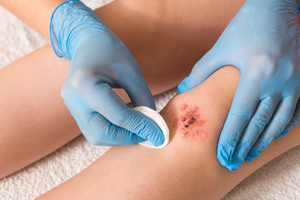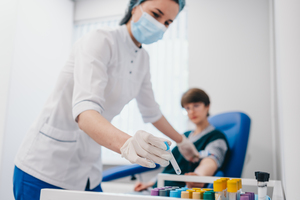Find a Flu Test Near Me in White House, TN
Own a clinic? Add your location.
Help patients book appointments with you on Solv. It's free!
19 instant-book locations

American Family Care, Indian Lake
American Family Care

Ascension Saint Thomas Urgent Care, Madison
Ascension Saint Thomas Urgent Care

Ascension Saint Thomas Urgent Care, Gallatin
Ascension Saint Thomas Urgent Care

Moore Life Urgent Care
Moore Life Urgent Care

Ascension Saint Thomas Urgent Care, Springfield
Ascension Saint Thomas Urgent Care

Ascension Saint Thomas Urgent Care, Hermitage
Ascension Saint Thomas Urgent Care

Ascension Saint Thomas Urgent Care, Mt. Juliet
Ascension Saint Thomas Urgent Care

Ascension Saint Thomas Urgent Care, Nashville
Ascension Saint Thomas Urgent Care

Ascension Saint Thomas Urgent Care, Donelson
Ascension Saint Thomas Urgent Care

American Family Care, Providence
American Family Care

American Family Care, Nashville South
American Family Care

American Family Care, Smyrna
American Family Care

Ascension Saint Thomas Urgent Care, Clarksville (Sango)
Ascension Saint Thomas Urgent Care

Ascension Saint Thomas Urgent Care, Springfield (Browning PCP)
Ascension Saint Thomas Urgent Care


Labcorp at Walgreens
Labcorp at Walgreens

Quest Diagnostics
Quest Diagnostics

Quest Diagnostics
Quest Diagnostics

Quest Diagnostics
Quest Diagnostics

Quest Diagnostics
Quest Diagnostics
Own a clinic? Add your location.
Help patients book appointments with you on Solv. It's free!
What you need to know about Flu Testing in White House, TN
A flu test can help you and your doctor determine if you have the flu and, if so, what treatment you'll need to reduce your symptoms and recover quickly. When you are suffering flu-like symptoms, you should get a flu test. Fever, chills, weakness, congestion, sore throat, cough, and muscle pains are all common flu symptoms. Other health disorders, such as COVID-19, can be ruled out with a flu test.
A flu test can be done using a swab or a nasal swab. Your healthcare professional uses a cotton swab to remove a sample of tissue and fluids from your nose during a swab test. A nasal test involves injecting a little amount of saline solution into your nose and then collecting the sample with gentle suction. Depending on whether you have a fast flu test or another test that requires your sample to be examined in a lab, results are available immediately or within one to two days.
If you are at risk of becoming seriously ill from the flu, a flu test may be required. Those who have a weaker immune system, are pregnant or hospitalized, are under the age of five, or are over the age of 65 are at a higher risk of serious sickness.
There is no need to prepare for a flu test, and there are no major risks or side effects. However, once your healthcare professional obtains the test sample, you may feel slight discomfort that lasts a few seconds. If your test results are positive, your doctor may prescribe drugs to help you manage your symptoms or work with you to choose the best treatment option. The flu usually passes in one to two weeks for the majority of people.
If you are at high risk of becoming extremely ill from the flu, your doctor may recommend that you obtain an annual flu vaccine. If you're at risk for the flu, talk to your doctor about how often you should get a flu test and when the best time is to receive the flu vaccine.
Flu Test FAQs
How much does a flu test cost in White House?
The cost of flu test kits ranges from $18 to $24.50, with an average of $20. A flu test, on the other hand, can cost more or less based on a number of factors, including provider rates, geographic location, and whether or not your health insurance plan covers this treatment. Calling the testing firm directly is the most accurate way to find out how much a flu test costs.
Does insurance cover flu testing?
Flu testing is covered by many health insurance policies, especially if your doctor requests it because of your symptoms. Contact your health insurance provider directly to learn more about your benefits and flu testing coverage. Some flu testing firms will verify your insurance benefits for free to see if this test is covered by your plan.
How long after exposure to flu will you test positive?
You should get tested for the flu within three to four days of becoming ill, according to the CDC. It also warns that even if you don't have any symptoms or aren't yet experiencing them, you can spread the virus to others. On average, flu symptoms appear one to four days after the virus has entered your body.
How do they test for the flu in White House?
The flu can be diagnosed using a swab test or a nasal aspirate. For the swab test, your healthcare provider will take tissue and fluid samples from your nose or throat with a swab. For the nasal aspirate test, a saline solution is injected into your nose, and the sample is extracted with mild suction. Your sample may be sent to a lab for analysis, or test results may be available immediately.
How long does it take to get flu test results in White House?
Flu test results may come back straight away or take many hours or days, depending on the testing procedure used. The rapid flu test delivers results in 30 minutes on average, whereas results from flu tests sent to the lab take one to two days to arrive. The flu test provider will be able to provide you a more accurate time frame for receiving your findings.
What is a rapid flu test?
A fast flu test can determine whether you have the flu in less than 30 minutes. This test is quite handy because the results are available right away. This also gives you and your healthcare provider the opportunity to discuss the numerous treatment options available to you. Other types of flu testing must be sent to a lab, with results arriving within a few days.
How accurate is the rapid flu test?
The rapid flu test has been shown to have a higher percentage of false positives and false negatives than other types of flu testing, making it less accurate. If your flu test results are likely to be inaccurate or imprecise, your doctor may choose to perform a different type of flu test that requires lab analysis.
Where should I get a flu test?
A flu test is available in your doctor's office, as well as any pharmacy, drugstore, hospital, urgent care clinic, or other healthcare facility that offers it. The easiest way to find out where you can get a flu test is to use Solv's flu test directory. So you don't have to waste time looking for top-rated flu test providers in your neighborhood, Solv can supply you with a list of them.
How accurate are flu tests?
The rapid flu test is the most often used flu test, albeit it is not as accurate as other flu tests due to a high proportion of false positives and false negatives. If you're concerned about the accuracy of flu test results, request a non-rapid flu test from your doctor or flu test provider, which will be sent to a lab for analysis.
Can I do at-home flu testing?
Some manufacturers sell at-home flu tests with results that can be viewed on your smartphone, though you may need a doctor's prescription to utilize this service. There is also an at-home test that can establish whether you have COVID-19 or the flu, but you'll need a doctor's prescription and the findings must be sent to a lab. Inquire with your doctor about the accuracy and accessibility of at-home flu testing.

Updated on Nov 25, 2025
Solv has strict sourcing guidelines and relies on peer-reviewed studies, academic research institutions, and medical associations. We avoid using tertiary references.
Related Searches
DOT Exam in White House
Ear Wax Removal in White House
Sports Physicals in White House
A1C Test in White House
Allergy Testing in White House
Basic Metabolic Panel in White House
CMP Test in White House
Diabetes Test in White House
Diagnostic Test in White House
Flu Test in White House
H Pylori Test in White House
Hepatitis test in White House
Lab Tests in White House
Mono Test in White House
Pregnancy Test in White House
RSV Test in White House
STD Testing in White House
Strep Test in White House
TB Test in White House
Thyroid Test in White House
Vitamin D Test in White House
Aetna Urgent Care
Blue Cross Blue Shield Urgent Care
Cigna Urgent Care
COVID-19
Flu
United Health Urgent Care
» All services in White HouseFind flu test
Nearby cities
Everyday Healthcare, Simplified
Expert advice to help you live your best life







